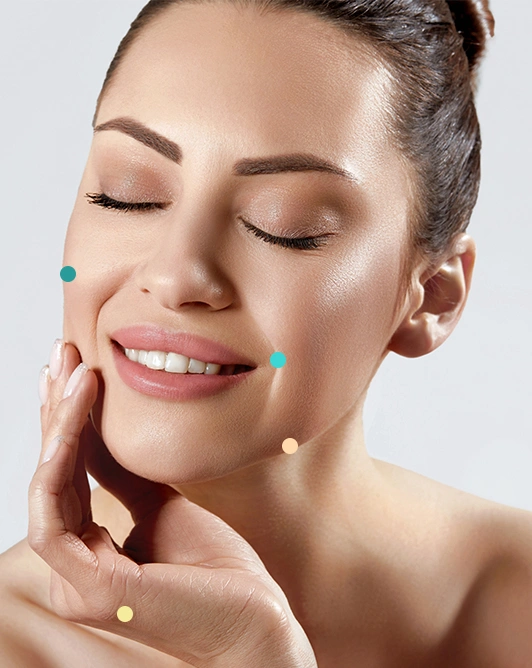In the quest for radiant, youthful skin, many individuals use various skincare treatments, and chemical peels are often among the top contenders. Chemical peels have gained popularity for their ability to rejuvenate the skin, diminish imperfections, and promote a more vibrant complexion. However, with the many skincare options available, it’s essential to understand whether chemical peels genuinely live up to their reputation. This blog post delves into chemical peels, exploring their benefits, considerations, and whether they are suitable for your skin.
Understanding Chemical Peels:
Before diving into the benefits, let’s first grasp what chemical peels entail. Chemical peels are skin care treatments that involve applying a chemical solution to the skin, which causes it to exfoliate and eventually peel off. This process removes dead skin cells, revealing fresher, smoother skin underneath. Chemical peels come in various strengths, from superficial to deep, depending on the specific concerns being addressed.
Chemical Peel Benefits:
Rejuvenates the Skin:
Chemical peels are renowned for rejuvenating the skin by promoting cellular turnover. As the outer layer of dead skin cells is shed, it paves the way for newer, healthier cells to surface. This results in a smoother texture, improved tone, and a youthful appearance.
Addresses Hyperpigmentation:
One of the most common skincare concerns is hyperpigmentation, including sunspots, age spots, and melasma. Chemical peels can help fade these dark patches by exfoliating the pigmented skin cells and encouraging the growth of new, evenly toned skin.
Reduces Acne and acne Scarring:
Acne can leave behind stubborn scars and blemishes that affect skin texture and appearance. Chemical peels containing ingredients like salicylic acid or glycolic acid can help unclog pores, reduce acne breakouts, and diminish the appearance of acne scars over time.
Improves Skin Texture:
Uneven skin texture characterized by roughness, fine lines, and wrinkles can be effectively addressed with chemical peels. By removing the outermost layer of dead skin cells, chemical peels smooth out rough patches, refine pores, and minimize the appearance of fine lines, resulting in softer, more supple skin.
Considerations Before Getting a Chemical Peel:
While chemical peels offer numerous benefits, it’s essential to consider certain factors before undergoing treatment.
Skin Sensitivity:
Individuals with sensitive skin may experience adverse reactions to specific chemical peel formulations. It’s crucial to consult with a skincare professional to determine the most suitable peel for your skin type and concerns.
Downtime:
Depending on the strength of the chemical peel, some individuals may experience downtime characterized by redness, peeling, and sensitivity. Planning accordingly and following post-treatment skincare recommendations can help minimize discomfort and enhance results.
Sun Protection:
Following a chemical peel, the skin becomes more susceptible to sun damage. Strict adherence to sun protection measures, such as wearing sunscreen and avoiding prolonged sun exposure, is vital to protect the newly revealed skin and maintain long-term results.
Preparing for a Chemical Peel:
Proper preparation can enhance the effectiveness of a chemical peel and minimize the risk of adverse reactions. Consider the following pre-treatment steps:
Consultation: Schedule a consultation with a qualified skincare professional to discuss your skincare concerns, medical history, and expectations from the treatment.
Skincare Regimen: Follow a skincare regimen recommended by your provider, which may include products containing ingredients like retinoids or alpha hydroxy acids to prep the skin for exfoliation.
Sun Protection: Practice diligent sun protection habits in the weeks leading up to your chemical peel. Sun exposure can increase the risk of post-peel complications and affect treatment outcomes.
Post-Peel Care:
After a chemical peel, proper post-treatment care is crucial to optimize results and minimize complications. Consider the following post-peel care guidelines:
Gentle Cleansing: Use a gentle cleanser to cleanse the skin without causing irritation or disrupting the healing process.
Moisturization: Keep the skin hydrated and nourished with a non-comedogenic moisturizer to prevent dryness and promote healing.
Sun Protection: Strict sun protection is essential following a chemical peel to prevent sunburn and protect the newly revealed skin from UV damage. Apply a broad-spectrum sunscreen with SPF 30 or higher daily, and avoid direct sun exposure, especially during peak hours.
Conclusion:
In conclusion, chemical peels offer many benefits for improving skin tone, texture, and overall appearance. From rejuvenating tired skin to addressing specific concerns like hyperpigmentation and acne, chemical peels can be a valuable addition to a comprehensive skincare routine.
However, it’s essential to approach chemical peels cautiously, considering skin sensitivity, downtime, and sun protection factors. If you’re considering a chemical peel to enhance your skin’s vitality and radiance, we invite you to book a consultation with Vitality Med Spa. Our experienced skincare professionals will assess your skin’s unique needs and recommend the most suitable treatment options to help you achieve your skincare goals.
Remember, healthy, glowing skin is within reach with the proper skincare regimen and professional guidance. Don’t hesitate to take the first step towards a more confident, beautiful you.




